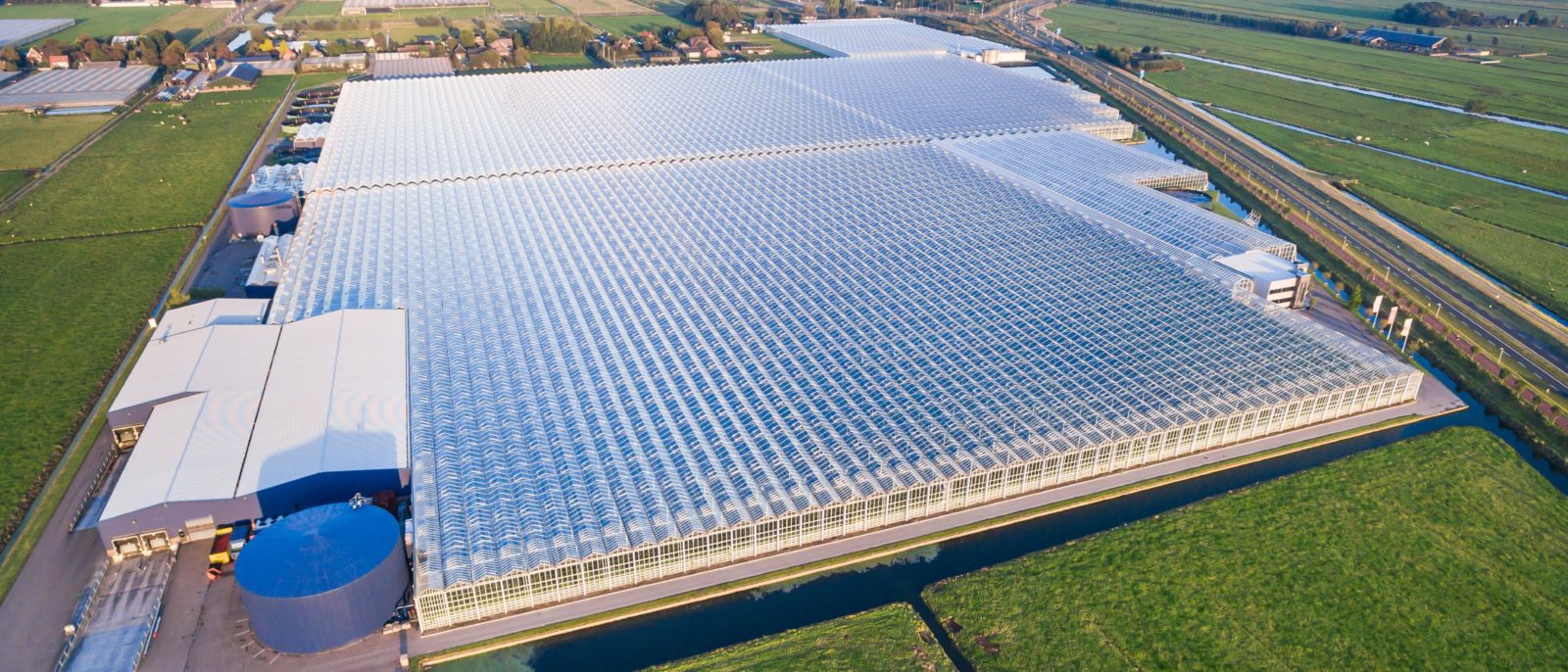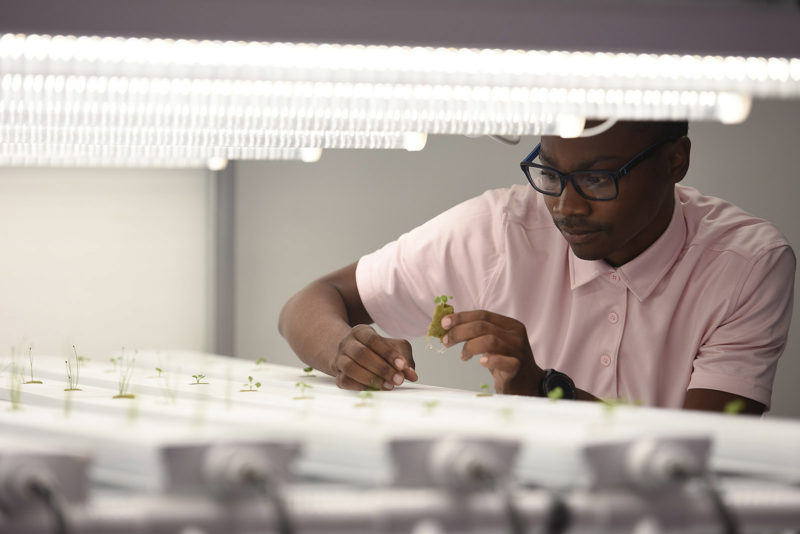
Center for Advanced Agriculture and Sustainability
The Center for Advanced Agriculture and Sustainability (CAA) exists to support the adoption of technology-enabled approaches to sustainable and localized farming methods.
The CAA is convening an international network of engineers, scientists, entrepreneurs and industry leaders to bring new applied research programs and agricultural technologies to Pennsylvania.
As Harrisburg University expands its facilities and programs into the sectors of food, agriculture, renewables and environment, the CAA is working to bring students, faculty and industry partners into collaboration around innovations at the nexus of food, water and energy.
CAA’s Mission
- DE-RISKING INNOVATION: Forging deep cross-sector partnerships to prove the efficacy of sustainable technologies, demonstrate economic feasibility and impact, and reduce the risks of new technology adoption for entrepreneurs, investors and the communities they serve;
- ADVANCING SUSTAINABILITY: The CAA will engage in applied research and validation of technologies and methods that are both sustainable and scalable. Compliance with Environmental, Social and Governance (ESG) standards are be prerequisite for technologies and business models supported by the Center;
- EDUCATING THE FUTURE WORKFORCE: Equipping learners for employment in ‘green’ job sectors with workforce development and training programs that bridge conventional divides between academic and vocational learning. This includes innovative micro-credentialing and blended virtual learning models that support the upskilling of workers from challenged industry sectors;
- IMPROVING LOCALIZED RESILIENCY: Providing information and resources to help communities adopt technologies that address people’s most essential needs in food, water and energy. The CAA champions technologies that enable decentralized food production and greater economic resiliency for communities.
- PROMOTING OPEN DATA: Developing knowledge sharing initiatives across an international network of partner institutions in industry, academia and public sector – fueling new business creation and empowering the next generation of farmers.
CAA Focus Areas
The Bioeconomy
The bioeconomy includes the production and use of renewable biological resources as well as economic activities related to the invention, development, production and use of biological products and processes. This includes production of food and non-food agricultural crops, and the technological processes that turn them into food, feed, bio-based products, agrofuels, and bioenergy. The bioeconomy encapsulates numerous sectors: agriculture, forestry, fisheries, construction, food processing, biomaterials, biotechnology, textiles, environmental technologies, industrial goods, chemicals and pharmaceuticals, and recycling and waste collection. It requires the forging of bridges between actors engaged in the following four pillars:
- Food production and processing
- Agri-environmental products and services
- Value-added food and health products
- Energy and bioenergy
Controlled Environment Agriculture
CEA involves agricultural production within enclosures that provide meaningful levels of biosecurity and climate control – either indoors with artificial lighting or in various types of greenhouse enclosures. CEA manages and monitors contained microclimates in order to maximize plant growth for high-yield and year-round crop production. These controlled environments can be built in a range of enclosures, greenhouses or indoor spaces equipped with artificial lighting. CEA facilities control ambient temperatures around plants and their root zone (rhizosphere), along with relative humidity, CO2 levels, lighting, nutrient levels and sources being delivered to plants. CEA is one of four branches of Novel Farming Systems:
- Indoor (vertical) farming and greenhouses
- Aquaculture (fish and aquatic organisms)
- Insect farming, alternative proteins and cellular ag
- Microbe & algae production

The ultimate convergence industry Controlled Environment Agriculture
Modern CEA creates ideal climates for crops to grow year-round, with fewer pests and pathogens, and with a fraction of the land and water resources. Furthermore, the demands of cultivating beneficial plants and organisms in optimal climate conditions makes CEA one of the most interdisciplinary industries in the world. From the lab to the commercial farm, a CEA facility provides the ultimate ‘living laboratory’ for experiential learning and skills development in otherwise disparate STEM fields. In a vertical farm, the most advanced modern applications of data science, robotics, and artificial intelligence converge around biology. In this concert of disciplines, growers learn to wield new technologies, cultivating increasingly diverse products as the bioeconomy sector pursues deeper understanding of natural systems.

More to Explore
Find Your Degree
Advance your career with graduate degree options that will help you excel in a rapidly-changing workplace.
Apply Today
Create an account and start your free online application to Harrisburg University.
Apply Now